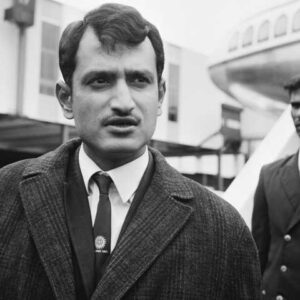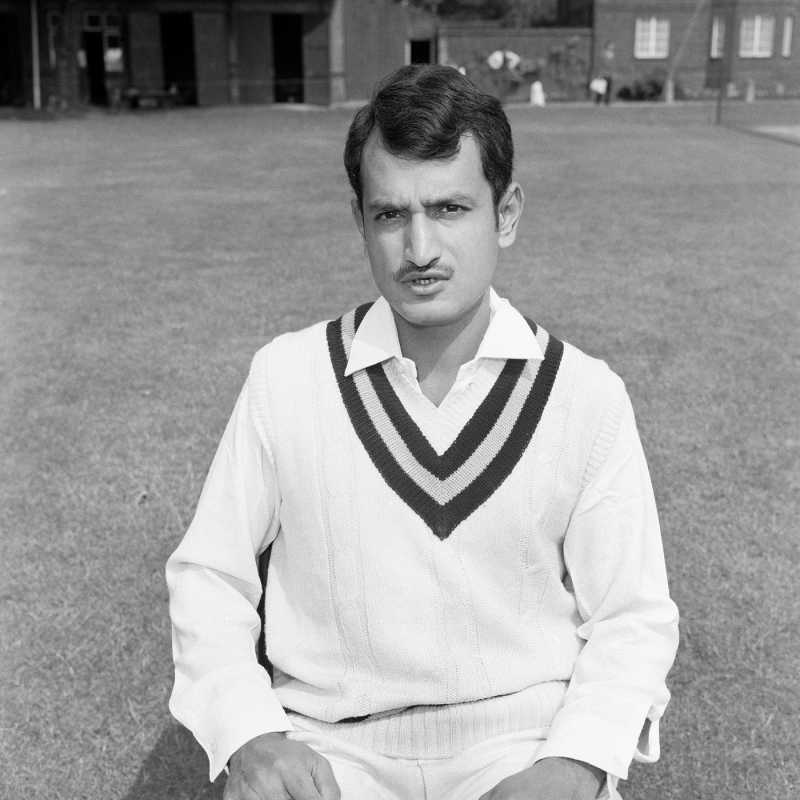Ajit Laxman Wadekar – The Man Who Made India Believe in Overseas Victories
When you think of turning points in Indian cricket, the year 1971 flashes bright. That was the year a calm, composed man from Bombay quietly redefined what it meant for India to compete — and win — abroad. His name was Ajit Laxman Wadekar, and his story is not just about cricket, but about leadership, humility, and vision.
In this in-depth profile, we’ll explore Wadekar’s life — from his early days to his historic captaincy, the facts that make him legendary, the significance of his work, and the way his values still impact our daily lives.
1. History & Early Life
Ajit Wadekar was born on 1 April 1941 in Bombay (now Mumbai). Growing up in a middle-class Maharashtrian family, academics were important, and his father wanted him to become an engineer. But destiny had other plans.
His cricketing journey began in college when leg-spinner Baloo Gupte noticed him and gave him a chance as twelfth man. This small opportunity opened a big door. Soon, Wadekar was representing Bombay in first-class cricket, debuting in the 1958–59 season.
His Test debut came in December 1966 against the West Indies. Initially, he was not the loudest presence on the field, but his elegance with the bat and sharp cricketing mind began to shine.

2. Career Highlights & Notable Facts
Here are some remarkable facts that capture his journey:
First Overseas Test Series Wins: Under Wadekar’s captaincy in 1971, India won their first Test series in the West Indies and first Test series in England — monumental achievements in Indian cricket.
First ODI Captain: He captained India in their very first One Day International in 1974.
Consistent Performer: In 37 Tests, he scored 2,113 runs with an average of 31.07, including one century and 14 fifties.
Exceptional Slip Fielder: Took 46 catches in Tests, showing superb reflexes.
Domestic Dominance: Led Bombay to four consecutive Ranji Trophy titles.
Awards & Recognition: Received the Arjuna Award in 1967 and the Padma Shri in 1972.
Later Roles: Served as coach and manager for the Indian team (1992–96), helping India remain unbeaten at home in 14 Tests.
Lifetime Honor: Awarded the C.K. Nayudu Lifetime Achievement Award by the BCCI in 2011.
3. Timeline of Major Events
| Year | Event |
|---|---|
| 1941 | Born in Bombay, India |
| 1958–59 | First-class debut for Bombay |
| 1966 | Test debut vs. West Indies |
| 1967 | Wins Arjuna Award |
| 1971 | Captains India to first-ever Test series wins in WI & England |
| 1972 | Receives Padma Shri |
| 1974 | First ODI captain for India |
| 1992–96 | Serves as India’s manager/coach |
| 1998–99 | Chairman of selection committee |
| 2011 | Receives Lifetime Achievement Award |
| 2018 | Passes away on August 15 |
4. Significance in Indian Cricket History
Before 1971, India’s record abroad was bleak. Overseas tours often meant losses. Wadekar changed that.
Strategic Captaincy: He used spinners like Bishan Bedi, Erapalli Prasanna, and Bhagwat Chandrasekhar brilliantly, making them the match-winners in foreign conditions.
Mental Shift: He inspired belief in players that they could beat the best, even on their home turf.
Foundation for Future: His leadership laid the groundwork for future Indian successes abroad.
5. Observance & Tributes
While Ajit Wadekar Day is not an official observance, his birthday (April 1) and the anniversaries of India’s 1971 series wins are celebrated by fans and cricket communities.
When he passed away in 2018, Indian players in England wore black armbands in his honor. Social media overflowed with tributes from former players and cricket boards.
Sunil Gavaskar said he was more than a captain — he was a mentor and a friend. Bishan Bedi remembered him as “a fine batsman, a great close-in catcher, and a captain who gave his players freedom.”
6. Importance in Our Life
Wadekar’s story teaches us:
Humility Matters: Success doesn’t require arrogance.
Opportunities Grow with Courage: Saying “yes” to small chances can lead to big breakthroughs.
Team First Approach: Leadership is about enabling others to succeed.
In our daily lives — whether at work, in school, or in personal relationships — these principles hold true.
7. Importance to Society
Sports legends like Wadekar do more than win matches:
National Pride: Victories abroad boosted India’s confidence as a sporting nation.
Role Model for Youth: His balanced demeanor and work ethic inspired countless youngsters.
Cultural Impact: Cricket victories often unite diverse sections of society, and Wadekar’s wins in 1971 were moments of collective celebration.
8. FAQs
Q1: Who was Ajit Wadekar?
A former Indian cricketer and captain who led India to its first overseas Test series wins in 1971.
Q2: What was his playing style?
A left-handed batsman known for elegant strokeplay and sharp cricketing intelligence.
Q3: What awards did he win?
Arjuna Award (1967), Padma Shri (1972), C.K. Nayudu Lifetime Achievement Award (2011).
Q4: Did he contribute after retirement?
Yes, he served as coach, manager, and chairman of selectors for the Indian cricket team.
Q5: When did he pass away?
On August 15, 2018, in Mumbai.

9. Important Points to Remember
First captain to win overseas Test series for India.
First ODI captain of India.
Combined calmness with tactical brilliance.
Played key administrative roles after retirement.
10. Wishing & Remembrance
If you’re honoring Wadekar on his birthday or remembering his contributions, here’s a heartfelt way:
“Remembering Ajit Wadekar — the captain who taught India how to win abroad. Your legacy inspires leaders on and off the field.”
11. Daily Life Impacts
Even outside cricket, Wadekar’s approach influences leadership in business, education, and community life:
Preparation Wins: His planning before matches mirrors how preparation in life leads to success.
Adaptability: Using spinners in foreign conditions shows the importance of using available resources creatively.
Calm Under Pressure: Remaining composed during tough moments is a universal life skill.
Conclusion
Ajit Laxman Wadekar’s name is forever etched in the golden pages of Indian cricket. His calm leadership, vision, and humility redefined what Indian teams could achieve. More than a sportsman, he was a leader whose lessons extend beyond cricket grounds — into offices, classrooms, and everyday challenges.
By proving that India could win overseas, he didn’t just change cricket history — he changed a nation’s sporting mindset.








